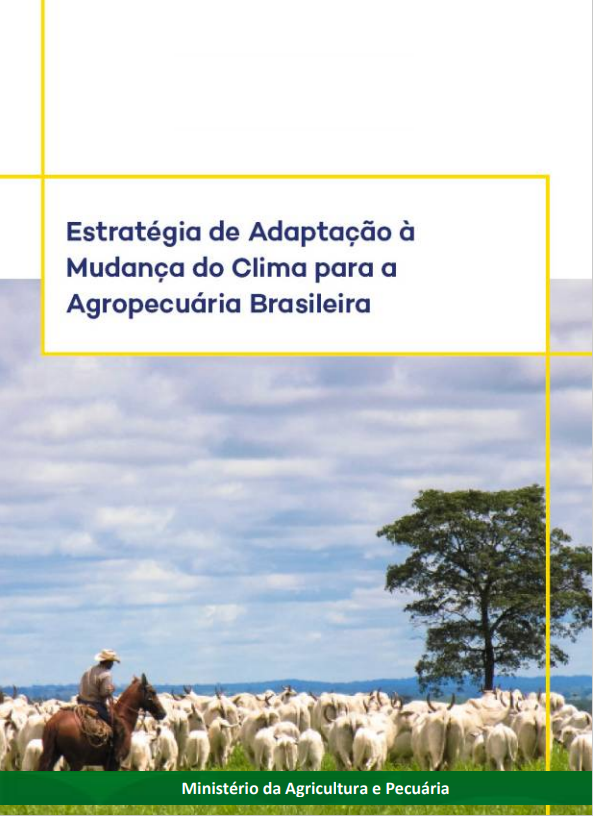
Climate Change Adaptation Strategy for the Brazilian Agriculture and Livestock Sector
The 2010 Low-Carbon Agriculture Plan (ABC Plan) represented one of the main instruments of Brazilian agricultural policy for promoting sustainability and tackling the harmful effects of climate change on the agriculture and livestock sector, bringing in one of the seven programs of the Plan—the Adaptation Program. The ABC Adaptation Plan is part of the National Adaptation Plan (NAP). The Agricultural Strategy of the NAP sought to assess the vulnerabilities of the agriculture and livestock sector and to support the sector by promoting the resilience of agro-ecosystems through the transfer of technologies.
Following a decade of action and positive results, the Sectoral Plan for Adaptation to Climate Change and Low Carbon Emissions in the Agriculture and Livestock Sector (ABC+) was released in 2021 (Mapa Act No. 471, of 10th August 2022) as a continuation of the ABC Plan for the period from 2020 to 2030. The objective of the ABC+ Plan is to achieve sustainable development, promoting the adaptive capacity of systems to climate change while at the same time reducing greenhouse gas emissions and facilitating productive efficiency and economic gains.
The ABC+ has a new conceptual foundation based on the lessons learned during its first decade. In its new phase, in addition to stimulating the adoption and maintenance of production systems, processes, and practices, the Plan stresses that adaptation is fundamental to the agriculture and livestock sector in the face of climate change, and incorporates the Integrated Landscape Approach, where the management of agricultural land considers the different elements of the rural landscape.
During the current decade, MAPA has been working on developing tools to help understand which gaps need to be filled to ensure production systems are resilient to climate change.
With the aim of devising and defining structural actions in order to adapt the Brazilian agriculture and livestock sector to climate change, with the support of the NAP Global Network and the International Institute for Sustainable Development, the ABC Cerrado Project and the Inter-American Institute for Cooperation on Agriculture (IICA), by means of the BRA/IICA 16/001 International Cooperation Project, in 2021 MAPA developed a tool called the Conceptual Framework for Assessing the Adaptation Strategies of Agriculture and Livestock Systems to Climate Change (CF), which is meant to guide the devising of adaptation strategies able to increase the resilience of agriculture and livestock systems.
After implementing the CF in different Brazilian agriculture and livestock production chains to validate this, MAPA used the strengths and weaknesses of the different production systems to propose the Climate Change Adaptation Strategy for the Brazilian Agriculture and Livestock Sector. This document presents Adaptation Initiatives (AIs), representing a pooling of efforts to be implemented in each axis of the CF to further develop measures that increase the adaptive capacity of the different agriculture and livestock systems in the face of climate change. Therefore, the principles, criteria, indicators, and verifiers make it possible to monitor the progress of actions taken and to report this on both the national and international levels.
Publisher: Secretariat of Innovation, Sustainable Development, Irrigation and Cooperativism; Ministry of Agriculture and Livestock (MAPA), Brazil